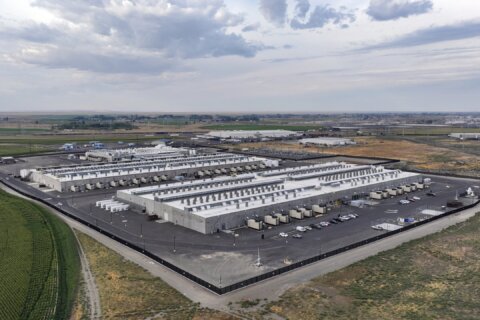WASHINGTON – A cell service company put eight cell sites up on what look like utility poles in Prince William County without the county’s permission, and it has set the county up as a test case for how the communications infrastructure could be placed across the commonwealth.
Mobilitie LLC describes itself as a company that offers services for wireless carriers, including building cell networks on existing utility poles or other properties. Prince William County Senior Assistant County Attorney Curt Spear said the company is looking to build small-scale antennae across the country on new or existing telephone or light poles.
While the company got tentative permission from the Virginia Department of Transportation to put some of these along Prince William County roads that are run by the state, that was contingent on local approvals that the county said the company never got.
The county has ordered the company to take the antennae down, but the company has appealed those notices to the Board of Zoning Appeals.
Spear said Mobilitie has now agreed to apply for any approvals it should have gotten. The situation has led to Mobilitie asking for permission from other Northern Virginia jurisdictions, such as Arlington County and Purcellville, before going ahead with installations.
In Prince William, Spear said, many of these installations are allowed under zoning rules for utility poles with just minor site plan amendments.
Supervisor Pete Candland said the county’s negotiations with Mobilitie give the company an unfair competitive edge.
“I’ve actually got a big problem with just the way that this has happened,” Candland said. “… We put traditional cellphone tower companies through their paces when putting up cellphone towers, and we should, and then they circumvented, I think, our rules by just having these pop up all over the county which, in one respect, puts them at a competitive advantage to all of their competitors.”
The company argues it has a right to use public rights of way as a state-certified phone service provider.
“We disagree with their reading of that statute, but that’s a novel issue that has not arisen before. It would not arise in the context of a telecommunications provider building, say, a 150-foot tower simply because they physically couldn’t locate such a structure in the available right-of-way,” Spear said.
It makes the county a test case for the law, but that law could change as soon as next year.
A bill that died in the General Assembly this year would have allowed all small cell service providers to access any public right-of-way in the state without any local approvals. Spear said the county expects a similar bill, again tied to the rollout of next-generation 5G cell service, to be introduced in the General Assembly session that begins in mid-January.
The Virginia Association of Counties and the Virginia Municipal League hope to maintain some level of local government approvals in the bill.







